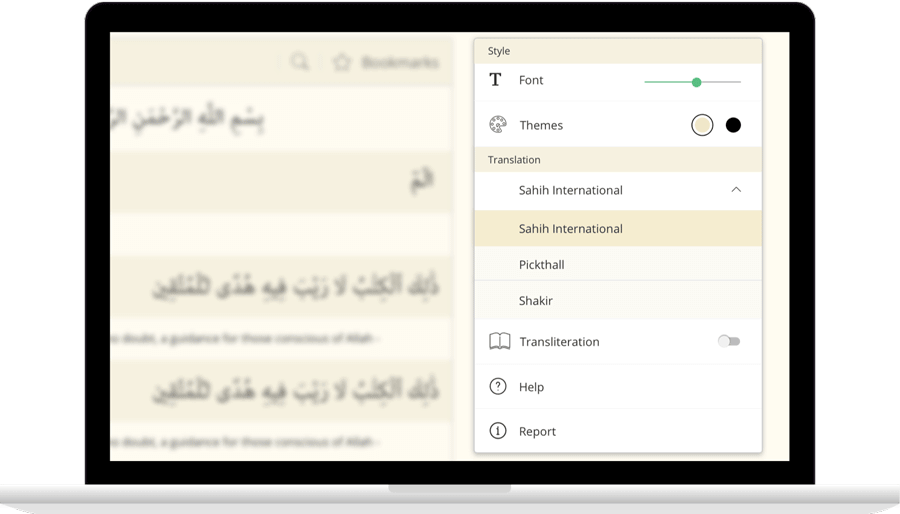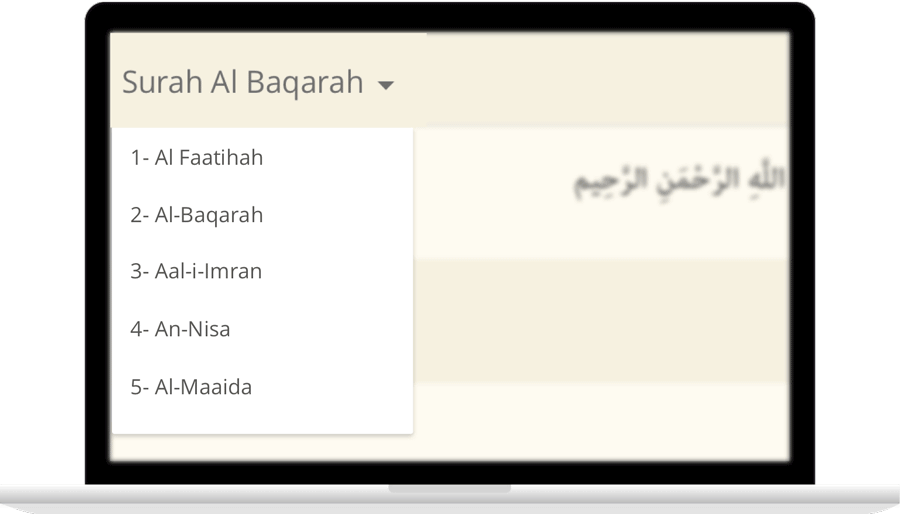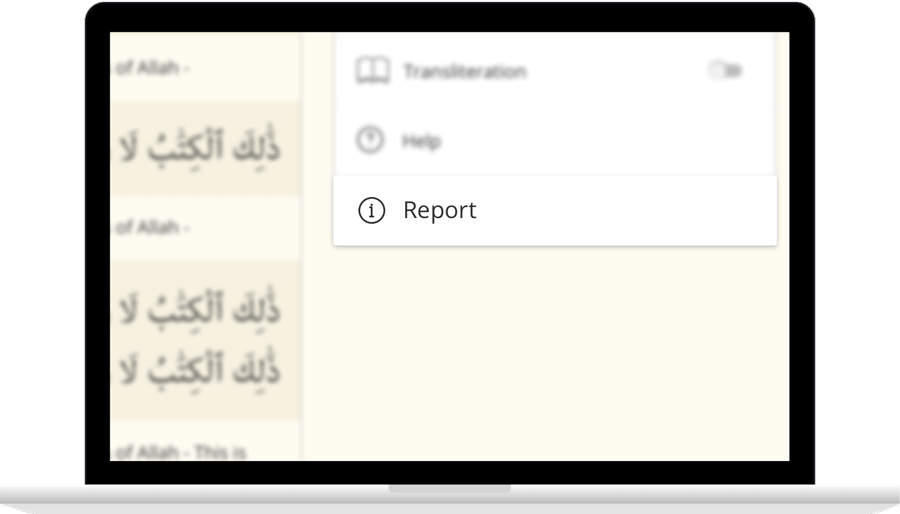Oku Surat NisaSure okuma
وَلْيَخْشَ ٱلَّذِينَ لَوْ تَرَكُوا۟ مِنْ خَلْفِهِمْ ذُرِّيَّةً ضِعَٰفًا خَافُوا۟ عَلَيْهِمْ فَلْيَتَّقُوا۟ ٱللَّهَ وَلْيَقُولُوا۟ قَوْلًا سَدِيدًا
Walyakhsha allatheena law tarakoo min khalfihim thurriyyatan diAAafan khafoo AAalayhim falyattaqoo Allaha walyaqooloo qawlan sadeedan
E coloro che temono di lasciare una posterità senza risorse, temano Allah e parlino rettamente.
إِنَّ ٱلَّذِينَ يَأْكُلُونَ أَمْوَٰلَ ٱلْيَتَٰمَىٰ ظُلْمًا إِنَّمَا يَأْكُلُونَ فِى بُطُونِهِمْ نَارًا وَسَيَصْلَوْنَ سَعِيرًا
Inna allatheena yakuloona amwala alyatama thulman innama yakuloona fee butoonihim naran wasayaslawna saAAeeran
In verità, coloro che consumano ingiustamente i beni degli orfani non fanno che alimentare il fuoco nel ventre loro, e presto precipiteranno nella Fiamma.
يُوصِيكُمُ ٱللَّهُ فِىٓ أَوْلَٰدِكُمْ لِلذَّكَرِ مِثْلُ حَظِّ ٱلْأُنثَيَيْنِ فَإِن كُنَّ نِسَآءً فَوْقَ ٱثْنَتَيْنِ فَلَهُنَّ ثُلُثَا مَا تَرَكَ وَإِن كَانَتْ وَٰحِدَةً فَلَهَا ٱلنِّصْفُ وَلِأَبَوَيْهِ لِكُلِّ وَٰحِدٍ مِّنْهُمَا ٱلسُّدُسُ مِمَّا تَرَكَ إِن كَانَ لَهُۥ وَلَدٌ فَإِن لَّمْ يَكُن لَّهُۥ وَلَدٌ وَوَرِثَهُۥٓ أَبَوَاهُ فَلِأُمِّهِ ٱلثُّلُثُ فَإِن كَانَ لَهُۥٓ إِخْوَةٌ فَلِأُمِّهِ ٱلسُّدُسُ مِنۢ بَعْدِ وَصِيَّةٍ يُوصِى بِهَآ أَوْ دَيْنٍ ءَابَآؤُكُمْ وَأَبْنَآؤُكُمْ لَا تَدْرُونَ أَيُّهُمْ أَقْرَبُ لَكُمْ نَفْعًا فَرِيضَةً مِّنَ ٱللَّهِ إِنَّ ٱللَّهَ كَانَ عَلِيمًا حَكِيمًا
Yooseekumu Allahu fee awladikum lilththakari mithlu haththi alonthayayni fain kunna nisaan fawqa ithnatayni falahunna thulutha ma taraka wain kanat wahidatan falaha alnnisfu waliabawayhi likulli wahidin minhuma alssudusu mimma taraka in kana lahu waladun fain lam yakun lahu waladun wawarithahu abawahu faliommihi alththuluthu fain kana lahu ikhwatun faliommihi alssudusu min baAAdi wasiyyatin yoosee biha aw daynin abaokum waabnaokum la tadroona ayyuhum aqrabu lakum nafAAan fareedatan mina Allahi inna Allaha kana AAaleeman hakeeman
Ecco quello che Allah vi ordina a proposito dei vostri figli: al maschio la parte di due femmine. Se ci sono solo femmine e sono più di due, a loro [spettano] i due terzi dell'eredità, e se è una figlia sola, [ha diritto al] la metà. Ai genitori [del defunto] tocca un sesto, se [egli] ha lasciato un figlio. Se non ci sono figli e i genitori [sono gli unici] eredi, alla madre tocca un terzo. Se ci sono fratelli, la madre avrà un sesto dopo [l'esecuzione de]i legati e [il pagamento de]i debiti. Voi non sapete, se sono i vostri ascendenti o i vostri discendenti, ad esservi di maggior beneficio. Questo è il decreto di Allah. In verità Allah è saggio, sapiente.
وَلَكُمْ نِصْفُ مَا تَرَكَ أَزْوَٰجُكُمْ إِن لَّمْ يَكُن لَّهُنَّ وَلَدٌ فَإِن كَانَ لَهُنَّ وَلَدٌ فَلَكُمُ ٱلرُّبُعُ مِمَّا تَرَكْنَ مِنۢ بَعْدِ وَصِيَّةٍ يُوصِينَ بِهَآ أَوْ دَيْنٍ وَلَهُنَّ ٱلرُّبُعُ مِمَّا تَرَكْتُمْ إِن لَّمْ يَكُن لَّكُمْ وَلَدٌ فَإِن كَانَ لَكُمْ وَلَدٌ فَلَهُنَّ ٱلثُّمُنُ مِمَّا تَرَكْتُم مِّنۢ بَعْدِ وَصِيَّةٍ تُوصُونَ بِهَآ أَوْ دَيْنٍ وَإِن كَانَ رَجُلٌ يُورَثُ كَلَٰلَةً أَوِ ٱمْرَأَةٌ وَلَهُۥٓ أَخٌ أَوْ أُخْتٌ فَلِكُلِّ وَٰحِدٍ مِّنْهُمَا ٱلسُّدُسُ فَإِن كَانُوٓا۟ أَكْثَرَ مِن ذَٰلِكَ فَهُمْ شُرَكَآءُ فِى ٱلثُّلُثِ مِنۢ بَعْدِ وَصِيَّةٍ يُوصَىٰ بِهَآ أَوْ دَيْنٍ غَيْرَ مُضَآرٍّ وَصِيَّةً مِّنَ ٱللَّهِ وَٱللَّهُ عَلِيمٌ حَلِيمٌ
Walakum nisfu ma taraka azwajukum in lam yakun lahunna waladun fain kana lahunna waladun falakumu alrrubuAAu mimma tarakna min baAAdi wasiyyatin yooseena biha aw daynin walahunna alrrubuAAu mimma taraktum in lam yakun lakum waladun fain kana lakum waladun falahunna alththumunu mimma taraktum min baAAdi wasiyyatin toosoona biha aw daynin wain kana rajulun yoorathu kalalatan awi imraatun walahu akhun aw okhtun falikulli wahidin minhuma alssudusu fain kanoo akthara min thalika fahum shurakao fee alththuluthi min baAAdi wasiyyatin yoosa biha aw daynin ghayra mudarrin wasiyyatan mina Allahi waAllahu AAaleemun haleemun
A voi spetta la metà di quello che lasciano le vostre spose, se esse non hanno figli. Se li hanno, vi spetta un quarto di quello che lasciano, dopo aver dato seguito al testamento e [pagato] i debiti. E a loro spetterà un quarto di quello che lasciate, se non avete figli. Se invece ne avete, avranno un ottavo di quello che lasciate, dopo aver dato seguito al testamento e pagato i debiti. Se un uomo o una donna non hanno eredi, né ascendenti né discendenti, ma hanno un fratello o una sorella, a ciascuno di loro toccherà un sesto, mentre se sono più di due divideranno un terzo, dopo aver dato seguito al testamento e [pagato] i debiti senza far torto [a nessuno]. Questo è il comando di Allah. Allah è sapiente, saggio.
تِلْكَ حُدُودُ ٱللَّهِ وَمَن يُطِعِ ٱللَّهَ وَرَسُولَهُۥ يُدْخِلْهُ جَنَّٰتٍ تَجْرِى مِن تَحْتِهَا ٱلْأَنْهَٰرُ خَٰلِدِينَ فِيهَا وَذَٰلِكَ ٱلْفَوْزُ ٱلْعَظِيمُ
Tilka hudoodu Allahi waman yutiAAi Allaha warasoolahu yudkhilhu jannatin tajree min tahtiha alanharu khalideena feeha wathalika alfawzu alAAatheemu
Questi sono i limiti di Allah. Chi obbedisce ad Allah e al Suo Messaggero, sarà introdotto nei Giardini dove scorrono i ruscelli, dove rimarrà in eterno. Ecco la beatitudine immensa.
وَمَن يَعْصِ ٱللَّهَ وَرَسُولَهُۥ وَيَتَعَدَّ حُدُودَهُۥ يُدْخِلْهُ نَارًا خَٰلِدًا فِيهَا وَلَهُۥ عَذَابٌ مُّهِينٌ
Waman yaAAsi Allaha warasoolahu wayataAAadda hudoodahu yudkhilhu naran khalidan feeha walahu AAathabun muheenun
E chi disobbedisce ad Allah e al Suo Messaggero e trasgredisce le Sue leggi, sarà introdotto nel Fuoco, dove rimarrà in perpetuo e avrà castigo avvilente.
وَٱلَّٰتِى يَأْتِينَ ٱلْفَٰحِشَةَ مِن نِّسَآئِكُمْ فَٱسْتَشْهِدُوا۟ عَلَيْهِنَّ أَرْبَعَةً مِّنكُمْ فَإِن شَهِدُوا۟ فَأَمْسِكُوهُنَّ فِى ٱلْبُيُوتِ حَتَّىٰ يَتَوَفَّىٰهُنَّ ٱلْمَوْتُ أَوْ يَجْعَلَ ٱللَّهُ لَهُنَّ سَبِيلًا
Waallatee yateena alfahishata min nisaikum faistashhidoo AAalayhinna arbaAAatan minkum fain shahidoo faamsikoohunna fee albuyooti hatta yatawaffahunna almawtu aw yajAAala Allahu lahunna sabeelan
Se le vostre donne avranno commesso azioni infami portate contro di loro, quattro testimoni dei vostri. E se essi testimonieranno, confinate quelle donne in una casa finché non sopraggiunga la morte o Allah apra loro una via d'uscita.
وَٱلَّذَانِ يَأْتِيَٰنِهَا مِنكُمْ فَـَٔاذُوهُمَا فَإِن تَابَا وَأَصْلَحَا فَأَعْرِضُوا۟ عَنْهُمَآ إِنَّ ٱللَّهَ كَانَ تَوَّابًا رَّحِيمًا
Waallathani yatiyaniha minkum faathoohuma fain taba waaslaha faaAAridoo AAanhuma inna Allaha kana tawwaban raheeman
E se sono due dei vostri a commettere infamità, puniteli; se poi si pentono e si ravvedono, lasciateli in pace. Allah è perdonatore, misericordioso.
إِنَّمَا ٱلتَّوْبَةُ عَلَى ٱللَّهِ لِلَّذِينَ يَعْمَلُونَ ٱلسُّوٓءَ بِجَهَٰلَةٍ ثُمَّ يَتُوبُونَ مِن قَرِيبٍ فَأُو۟لَٰٓئِكَ يَتُوبُ ٱللَّهُ عَلَيْهِمْ وَكَانَ ٱللَّهُ عَلِيمًا حَكِيمًا
Innama alttawbatu AAala Allahi lillatheena yaAAmaloona alssooa bijahalatin thumma yatooboona min qareebin faolaika yatoobu Allahu AAalayhim wakana Allahu AAaleeman hakeeman
Allah accoglie il pentimento di coloro che fanno il male per ignoranza e che poco dopo si pentono: ecco da chi Allah accetta il pentimento. Allah è saggio, sapiente.
وَلَيْسَتِ ٱلتَّوْبَةُ لِلَّذِينَ يَعْمَلُونَ ٱلسَّيِّـَٔاتِ حَتَّىٰٓ إِذَا حَضَرَ أَحَدَهُمُ ٱلْمَوْتُ قَالَ إِنِّى تُبْتُ ٱلْـَٰٔنَ وَلَا ٱلَّذِينَ يَمُوتُونَ وَهُمْ كُفَّارٌ أُو۟لَٰٓئِكَ أَعْتَدْنَا لَهُمْ عَذَابًا أَلِيمًا
Walaysati alttawbatu lillatheena yaAAmaloona alssayyiati hatta itha hadara ahadahumu almawtu qala innee tubtu alana wala allatheena yamootoona wahum kuffarun olaika aAAtadna lahum AAathaban aleeman
Ma non c'è perdono per coloro che fanno il male e che, quando si presenta loro la morte, gridano: “Adesso sono pentito!”; e neanche per coloro che muoiono da miscredenti. Per costoro abbiamo preparato doloroso castigo.
Contact Us

Thanks for reaching out.
We'll get back to you soon.









